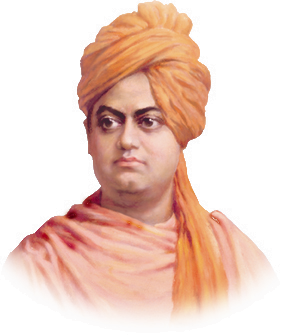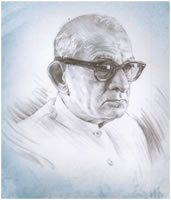- Autonomous College - Affiliated to O.U ,
- Reaccredited with 'A' Grade by NAAC ,
 Sainikpuri, Secunderabad - 500094.
Sainikpuri, Secunderabad - 500094. 040-27111611, 27115878
040-27111611, 27115878 bvc@bhavansvc.ac.in
bvc@bhavansvc.ac.in

Bharatiya Vidya Bhavan, Sainikpuri Kendra was established on 8th of July, 1989, on the merger of erstwhile Ramakrishna Seva Samithi with the Bharatiya Vidya Bhavan.
Bharatiya Vidya Bhavan was founded by Kulapati Dr.K.M.Munshi on 7th of November, 1938, with the blessings and support of Mahatma Gandhi. The main aim of the Bhavan is to preserve and perpetuate eternal Indian values through its conglomerate of more than 367 constituent institutions including 119 centers in India and 7 centers abroad. The Bhavan, started as an educational trust, serves to envisage the best in the various fields of education including Science, Arts, Technology, Economics and Management. The Bhavan has several schools and colleges under its umbrella which strive to maintain its motto- “Let noble thoughts come to us from every side", a quote from the Rigveda.
Bhavan’s Vivekananda college of Science, Humanities and Commerce was established under the aegis of Bharatiya Vidya Bhavan, on 2nd of August, 1993 with 131 students. Since inception, the college has been strongly promoting the ideals of the Bhavan, by providing education blended with a strong foundation of the fundamental values of life. The college offers undergraduate programmes in Physical sciences, Lifesciences, commerce, Mass communication and Business administration as well as 5 post graduate programmes (Computer Science, Microbiology, Biochemistry, Business administration and Commerce). Currently, 2 doctoral programmes are offered in microbiology and biochemistry. The curriculum of the courses is designed to cater to the growing needs of industry and society. The college also strives to raise the intellectual and moral standards of the students.
The college has been accredited with ‘A’ grade by NAAC in 2012 and granted autonomy by the UGC in 2015. The sprawling, vibrant campus has a peaceful atmosphere conducive to not only teaching and learning, but also to the development of the future citizens of our country.

Kulapati Dr.K.M.Munshi was born in Bharuch in Gujarat, on 30th December 1887. He acquired the LL.B degree in the year 1907 and practiced law in Bombay. He was a social reformer and activist in the areas of women’s rights and caste prejudice. Munshiji joined the Indian National Congress in 1916 and subsequently functioned as the Secretary of Bombay Presidency Association. Munshiji held several important posts like Member of Constituent Assembly of India, Minister of Agriculture and Food of India and Governor of Uttar Pradesh.
Dr.K.M.Munshi was a philosopher in action and a man with great ideas and courage. Munshiji was known for his multifaceted personality. The versatility of Munshiji was seen in his roles as a lawyer, creative writer, constitution-maker, freedom fighter, administrator, organization-builder and champion of Indian culture.
Munshiji founded Bharatiya Vidya Bhavan, an educational trust, in the year 1938 with the blessings of Mahatma Gandhi, with an aim to preserve Indian culture, education and art from a secular perspective. He said, “We, the Bhavan’s family, whether it is the smaller one or the larger one, must make every effort to uphold Dharma- the three-fold aspects of which are Satyam, Shivam and Sundaram- Truth, Love and Beauty, in the personal and collective life.” Munshiji not only wanted to connect Indian education with its magnificent heritage, but also wanted to encompass the best of the modern world in the fields of Science and Management.
Through the discerning vision of Dr.K.M.Munshi, the Bhavan has thrived as a strong national movement with an international outlook, devoted to dissemination and modernization of Indian culture.

The Bhavan stands for the reintegration of Indian Culture. In a world falling to pieces under the impact of an amoral technological avalanche, it tries to hold fast to the fundamental values for which our culture stands- Rita, Satya, Yagna and Tapas:
This, regardless of forms and doctrines in Dharma, the three fold aspects of which are SATYAM, SHIVAM, SUNDARAM- Truth, Love and Beauty. It is for these values that our forefathers lived and died. So did Sri Ramakrishna Paramahamsa, Swami Dayananda, Swami Vivekananda, Gandhiji and Sri Aurobindo among the moderns. These values are embedded in our national outlook. We can look forward to the future with confidence only because they have the vitality which gives the power to indicate their validity even in this fear and avarice-ridden age of ours.
We, the Bhavan's family, whether it is the smaller or the larger one, must make every effort in restoring these values in our personal and collective lives.